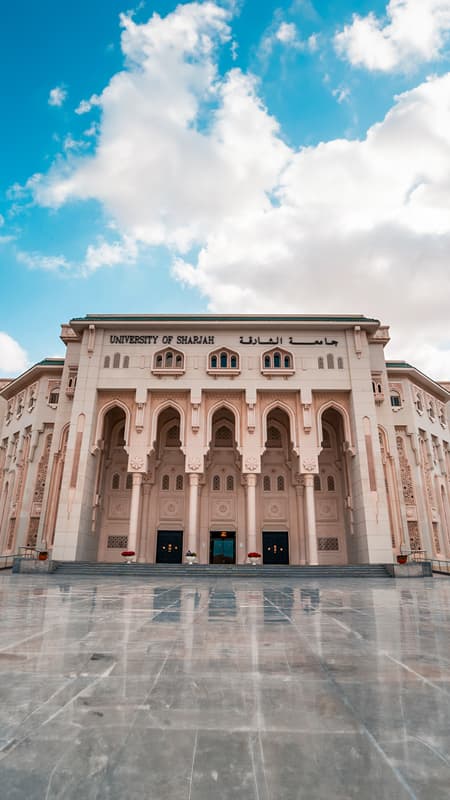With Important Recommendations in its Closing Sessions: The Fourth International Conference on Arabs’ and Muslims’ History of Sciences Concludes its Activities
- Relay the Conference recommendations to the Sharjah International Foundation for the History of Arab and Muslim Sciences to follow up on their implementation
- Translating scientific research and publishing it in an international journal
- Forming a working group to monitor, digitize, verify, and publish manuscripts dealing with medical research and studies
The Fourth International Conference on Arabs' and Muslims' History of Sciences themed: "Scientific Legacy and its Contemporary Impacts," concluded its activities. The Conference came under the patronage of His Highness Sheikh Dr. Sultan bin Mohammad Al Qasimi, Member of the Supreme Council, Ruler of Sharjah, and President of the University of Sharjah. The University of Sharjah's College of Sciences organized the Conference under the umbrella of the Sharjah International Foundation for the History of Arab and Muslim Sciences (SIFHAMS) at the University of Sharjah.
His Excellency Prof. Hamid M.K. Al Naimiy, Chancellor of the University of Sharjah, began the Conference closing session expressing his gratitude and appreciation to His Highness the Ruler of Sharjah for his support. He also praised the tremendous success of the current session of the Conference, in which the number of participants in its activities in general reached more than 1,300 participants from 40 countries around the world. The University Chancellor also thanked the participating scientists and researchers, the main speakers of the Conference, the scientific and organizational committees' members, and the chairs of the scientific sessions. In his speech, the Chancellor also expressed his happiness that the University of Sharjah is the first university in the region and the Arab and Islamic worlds to hold a conference of this size virtually.
The Chancellor praised the quality of the presented research papers, especially those by students, researchers, scientists, and specialists, which he also said is an enrichment of what was set by previous Arab and Muslim scholars. He also asked the scientific and organizing committee of the Conference to review research according to the recognized principles of arbitration and publish it in a special journal. He instructed to relay the Conference recommendations to the Sharjah International Foundation for the History of Arab and Muslim Sciences to follow up on their implementation.
For his part, Dr. Hussein Elmahdi, Chairman of the Conference Organizing Committee, delivered a speech in which he reviewed the most important recommendations and proposals that emerged from the Conference discussions, research, and scientific sessions. Those include the recommendation to continue holding the Conference periodically, provided that it is hybrid in nature to allow researchers from different countries of the world to participate either by physical or virtual attendance. He added the recommendations included allocating several sessions in the upcoming conferences for undergraduate and graduate students to participate with their research and assigning incentive rewards for them. As well as issuing a special journal containing all the research presented at the Conference after reviewing them according to the recognized principles of scientific publishing.
The Conference also recommended the necessity of translating the distinguished research papers presented and discussed into the English language in order to contribute to publishing them in international scientific journals. It also called for involving specialists, researchers, and non-Arab entities in the Conference with the aim of spreading, awareness and introducing the Arab and Islamic scientific legacy and contributions. This with a focus on highlighting the contributions of Arab and Muslim scholars in the fields of Islamic arts and traditional crafts that have proven possible to develop and integrate with contemporary arts. The Conference, he added, also recommended assigning SIFHAMS to build a comprehensive website concerned with the history of Arab and Muslim sciences.
The Conference also recommended making use of the experiences of the University of Sharjah in the introduction of the course: "History of Arab and Muslim sciences" in educational curricula in all disciplines such as medicine, basic sciences, engineering, astronomy, and literature. Also, to cooperate with academic and research institutions to include the topic of the history of Arab and Muslim sciences in the various stages of educational curricula. As well as holding workshops highlighting the Arab and Islamic scientific and knowledge legacy in the Central Asian region (Uzbekistan, Tajikistan, Kazakhstan). The Conference also called for forming a working group to monitor manuscripts dealing with medical research and studies in the world, digitizing them electronically, and encouraging researchers to investigate and publish them in centers that are interested in heritage.
Finally, the Fourth International Conference on Arabs' and Muslims' History of Sciences recommended supplementing the libraries of universities in the Arab world and the world with the Conference research and recommendations to raise awareness of this topic. It stressed the significant roles of media and social media for spreading and awareness about the civilizational, cultural, and scientific role of Arabs and Muslims. It also urged authors to write and re-chronicle Arab and Islamic sciences with an advanced, modern, and objective methodology consistent with the modern discourse followed in such matters.



